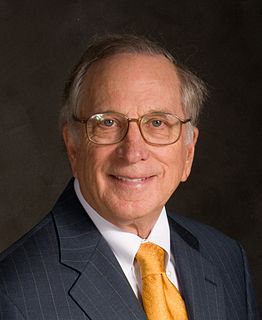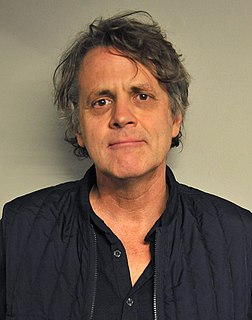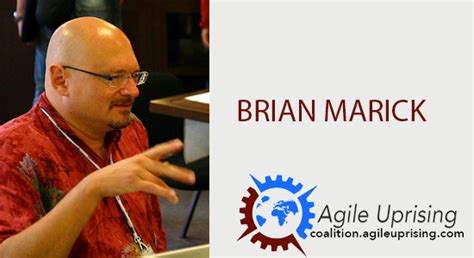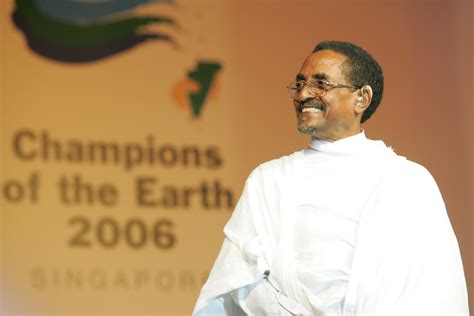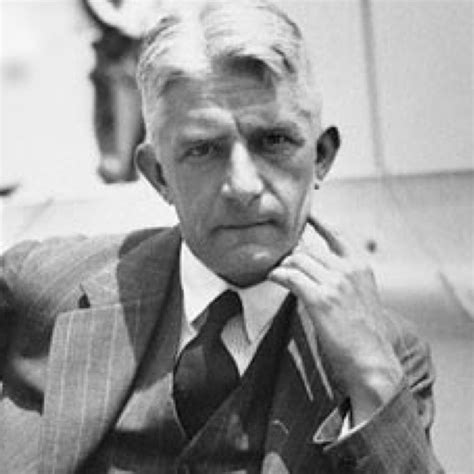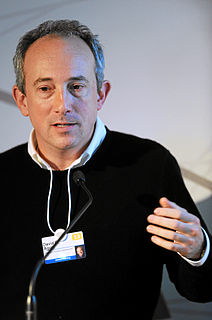Top 1200 Development Of Technology Quotes & Sayings - Page 17
Explore popular Development Of Technology quotes.
Last updated on November 18, 2024.
The solutions put forth by imperialism are the quintessence of simplicity...When they speak of the problems of population and birth, they are in no way moved by concepts related to the interests of the family or of society...Just when science and technology are making incredible advances in all fields, they resort to technology to suppress revolutions and ask the help of science to prevent population growth. In short, the peoples are not to make revolutions, and women are not to give birth. This sums up the philosophy of imperialism.
At the beginning of almost every industry, the available products and services are so expensive to own and complicated to use that only people with a lot of money and a lot of skill have access to them. A disruptive technology is an innovation that simplifies the product and makes it so affordable that a whole new population of people can now have one and use it at the beginning for simple applications, and then it improves to the point that it makes the old technology obsolete.
I'm going to show you a technology today which takes insults and criticisms out of the airwaves. (Marshall puts on giraffe ears) With this technology, it will be impossible for you to hear criticisms, harsh remarks, or insults. All you can hear is what all people are ever saying, "please" and "thank you". What used to sound like criticism, judgment, or blame, you will see, are really tragic, suicidal expressions of "please".
Ares always reemerges from the chaos. It will never go away. Athenian civilization defends itself from the forces of Ares with metis, or technology. Technology is built on science. Science is like the alchemists' uroburos, continually eating its own tail. The process of science doesn't work unless young scientists have the freedom to attack and tear down old dogmas, to engage in an ongoing Titanomachia. Science flourishes where art and free speech flourish.
You know what your trouble is? You're the kind who always reads the handbook. Anything people build, any kind of technology, it's going to have some specific purpose. It's for doing something that somebody already understands. But if it's new technology, it'll open areas nobody's ever thought of before. You read the manual, man, and you won't play around with it, not the same way. And you get all funny when somebody else uses it to do something you never thought of.
Motive is also important in our quest for knowledge and in the questioning that accompanies it. In commenting on our duty to educate for eternity, Eugene England writes: Teaching or learning - with the Spirit of God simply means (though it is not simple) that we are doing so with an eye single to eternal, not worldly, values, with an eye single to lasting development of the mind and spirit and to useful service to others, especially to aid in their lasting development of mind and spirit.
Once you change the technology - from a film camera to a video camera, or from an 8-mm camera to 16 mm - you change completely the content. With 8 mm, a leaf on a tree will be made up of maybe four grains. So it's very impressionistic, almost like Seurat. If you switch to 16 mm, the technology gives you hundreds of grains on that leaf.
There is a pervasive mistrust that grew out of the Cold War and still continues today - even though there are a lot more mutual interests between Europe, Russia and the United States than ever before. But the way we organize things today, it takes years to negotiate. By the time you get a result, the technology has far outrun the policy. So we have to start a dynamic, sustainable type of policy deliberations that can catch up with technology.
The great question for our time is, how to make sure that the continuing scientific revolution brings benefits to everybody rather than widening the gap between rich and poor. To lift up poor countries, and poor people in rich countries, from poverty, to give them a chance of a decent life, technology is not enough. Technology must be guided and driven by ethics if it is to do more than provide new toys for the rich.
I spent the first years working in Jordan trying to learn as much as I could about what was taking place in the country, about where there were gaps in the development process that needed attention. Inevitably, there were certain common denominators which are fairly common to all developing societies, perhaps to all societies: that quality education be accessible to everyone, not just a limited elite few; the sustainable conservation of natural resources; the full engagement of women in national development; and the value of cross-cultural exchange and understanding to international relations.
Psychohistory, like psychoanalysis, is a science in which the researcher's feelings are as much or even more a part of his research equipment than his eyes or his hands. Weighing of complex motives can only be accomplished by identification with human actors, the usual suppression of all feeling preached and followed by most "science" simply cripples a psychohistorian as badly as it would cripple a biologist to be forbidden the use of a microscope. The emotional development of a psychohistorian is therefore as much a topic for discussion as his or her intellectual development.
I believe the proliferation of weapons of mass destruction presents the greatest threat that the world has ever known. We are finding more and more countries who are acquiring technology - not only missile technology - and are developing chemical weapons and biological weapons capabilities to be used in theater and also on a long range basis. So I think that is perhaps the greatest threat that any of us will face in the coming years.
Very little in science fiction can transcend the gimmickry of a technical conceit, yet without that conceit at its heart a book is not truly science fiction. Furthermore, so little emerging thought and technology is employed by sf writers today that the genre is lagging far behind reality both in the cosmology area and the technology area: sf is no longer a place to experiment, but is now very derivative.
Oil platforms are a technology for floating permanently on the high seas, and cruise ships are a technology for self-governance on the high seas, and if you combine these two technologies, imagine cruise ships that never dock but float permanently. Imagine if they were 10 times as big. Imagine if they were modular and could move about and you could choose the neighbours you wanted to live with.
The most central and irrational faith among people is the faith in technology and economical growth. Its priests believe until their death that material prosperity bring enjoyment and happiness - even though all the proofs in history have shown that only lack and attempt cause a life worth living, that the material prosperity doesn't bring anything else than despair. These priests believe in technology still when they choke in their gas masks.
The great age of the earth will appear greater to man when he understands the origin of living organisms and the reasons for the gradual development and improvement of their organization. This antiquity will appear even greater when he realizes the length of time and the particular conditions which were necessary to bring all the living species into existence. This is particularly true since man is the latest result and present climax of this development, the ultimate limit of which, if it is ever reached, cannot be known.
Nothing we do in this great capital can change the fact that factories or information can flash across the world, that people can move money around in the blink of an eye... Nothing can change the fact that technology can be adopted, once created, by people all across the world and then rapidly adapted in new and different ways by people who have a little different take on the way that technology works.
A complete theory of evolution must acknowledge a balance between "external" forces of environment imposing selection for local adaptation and "internal" forces representing constraints of inheritance and development. Vavilov placed too much emphasis on internal constraints and downgraded the power of selection. But Western Darwinians have erred equally in practically ignoring (while acknowledging in theory) the limits placed on selection by structure and development what Vavilov and the older biologists would have called "laws of form.
I think that we're at an alarming moment in American political development and maybe in world political development, because the United States is so influential. If the trends of the last thirty or forty years are not halted and reversed - and those trends include increasingly inequality, a crumbling public life, a disintegrating public infrastructure, an exhausted ecology, and a huge war arsenal, and more and more war making - then I'm rather gloomy about the prospects for the American future and the harm that the United States could do to the world.
I think films are perishable, because they depend too much on technology, which advances too quickly and the films become old-fashioned, antiques. What I hope for is that technology advances to the point that films in the future will depend on a little pill which you take; then you sit in the dark, and from your eyes you project the film you want to see on a blank wall.
Physiologically, man in the normal use of technology (or his variously extended body) is perpetually modified by it and in turn finds ever new ways of modifying his technology. Man becomes, as it were, the sex organs of the machine world, as the bee of the plant world, enabling it to fecundate and to evolve ever new forms. The machine world reciprocates man's love by expediting his wishes and desires, namely, in providing him with wealth.
The government must nurture an eco-system where the economy is primed for growth; and growth promotes all-rounddevelopment. Where development is employment-generating ; and employment is enabled by skills. Where skills are synced with production; and production is benchmarked to quality. Where quality meets global standards; and meeting global standards drives prosperity. Most importantly, this prosperity is for the welfare of all. That is my concept ofeconomic good governance and all round development.
California has often led the country, indeed the world, in the technology, consumption, trends, lifestyles, and of course, mass entertainment. It is where the car found its earliest and fullest expression, where suburbs blossomed, where going to gym replaced going to church, where forces that lead so many to assume that direct democracy is the wave of the future - declining political parties, telecommuting, new technology, the internet generation 0 are all most well developed in this vast land.
The idea of suicide, understandable as it is, does not seem commendable to me. We live in order to gain the greatest possible amount of spiritual development and self-awareness. As long as life is possible, even if only in a minimal degree, you should hang onto it, in order to scoop it up for the purpose of conscious development. To interrupt life before its time is to bring to a standstill an experiment which we have not set up. We have found ourselves in the midst of it and must carry it through to the end.
The strengths landscape architecture draws from its garden design heritage include: the Vitruvian design tradition of balancing utility, firmness and beauty; use of the word 'landscape' to mean 'a good place' - as the objective of the design process; a comprehensive approach to open space planning involving city parks, greenways and nature outside towns; a planning theory about the contextualisation of development projects; the principle that development plans should be adapted to their landscape context.
You know, development sometimes is viewed as a project in which you give people things and nothing much happens, which is perfectly valid, but if you just focus on that, then you'd also have to say that venture capital is pretty stupid, too. Its hit rate is pathetic. But occasionally, you get successes, you fund a Google or something, and suddenly venture capital is vaunted as the most amazing field of all time. Our hit rate in development is better than theirs, but we should strive to make it better.
Evolution is variation and selection. If you can vary alternatives, and select among them, improvement emerges. It works in technology, in apps, and in life itself. What stunned me about seasteading is that it's a technology for variation and selection in governance itself. The reason some two hundred nation-states do a poor job of governing seven billion people is that they don't vary, and people don't select.
As well as Japanese animation, technology has a huge influence on Japanese society, and also Japanese novels. It's because before, people tended to think that ideology or religion were the things that actually changed people, but it's been proven that that's not the case. Technology has been proven to be the thing that's actually changing people. So in that sense, it's become a theme in Japanese culture.
I've been working in computer animation for 25 years. I'm obviously a devotee of the technology. I just think it's the one aspect of the medium that's going to continue to revolutionize the filmmaking. It's constantly changing and it's constantly opening up new possibilities. The technology is evolving where 2-D animation was ultimately limited by how long you could pay how many people to make a movie. I mean computers, not that it's in anyway a labor saving device, but it promises to open up exciting new technical possibilites.
Why did the consensus of Christian churches not only accept these astonishing views but establish them as the only true form of Christian doctrine? . . . these religious debates - questions of the nature of God, or of Christ - simultaneously bear social and political implications that are crucial to the development of Christianity as an institutional religion. In simplest terms, ideas which bear implications contrary to that development come to be labeled as 'heresy'; ideas which implicitly support it become 'orthodox.'
I love technology. Matches, to light a fire is really high tech. The wheel is REALLY one of the great inventions of all time. Other than that I am an ignoramus about technology. I once looked for the 'ON' button on the computer and came to find out it was on the back. Then I thought, anyone who would put the 'on' switch on the back, where you can't find it, doesn't do any good for my psyche. The one time I did get the computer on, I couldn't turn the damn thing off!
The main challenge is technology and that's something I really push and work closely with Adidas on. They're real leaders in sports performance; always trying to push that further and further and get the best technology they can. That takes time and has rigorous testing, it's very laborious, but it's also very rewarding. You get to work with fantastic athletes, and that's a fantastic thing that has nothing to do with my day job in ready-to-wear.
The issue of climate change, it really does bring home the fact that we are on one planet, and that some of the impact of what human beings do in one corner of the world is going to affect people in a distant corner of the world. So we may still feel very far from each other, but we are really very close to each other because of the changes we have made with travel and technology and especially the information technology.
I have always been interested in conducting research that yielded new methods by which to make cloth, and in developing new materials that combine craftsmanship and new technology. But the most important thing for me is to show that, ultimately, technology is not the most important tool; it is our brains, our thoughts, our hands, our bodies, which express the most essential things.
We do not need more material development, we need more spiritual development. We do not need more intellectual power, we need more moral power. We do not need more knowledge, we need more character. We do not need more government, we need more culture. We do not need more law, we need more religion. We do not need more of the things that are seen, we need more of the things that are unseen. It is on that side of life that it is desirable to put the emphasis at the present time. If that side be strengthened, the other side will take care of itself.
Historically, the idea that you take something novel and you break it has been seen as the ultimate rejection of Enlightenment values, of progress, of civilization - because how could you possibly move forward if you break technology? I think that that misses the point, that if you introduce any kind of technology, what you're introducing is a new way of living and the consequences of that new way of living for people who were enmeshed in a different way of living need to be thought through.
You know, the technology was at the right place for us to build this world. The most difficult thing about doing The Croods was no doubt the building of the world. Every single thing in this film is organic. Organic things are tough. Very very labour intensive. And we have no man-made structures. You could argue that everything in this film is really an exterior. Even the interiors of the cave are exteriors. So building this world was the biggest thing of all, and the technology was there to do it.
The Nuffield report suggests that there is a moral imperative for investment into GM crop research in developing countries. But the moral imperative is in fact the opposite. The policy of drawing of funds away from low-cost sustainable agriculture research, towards hi-tech, exclusive, expensive and unsafe technology is itself ethically questionable. There is a strong moral argument that the funding of GM technology in agriculture is harming the long-term sustainability of agriculture in the developing world.
Modern man, seeking a middle position in the evaluation of sense impression and thought, can, following Plato , interpret the process of understanding nature as a correspondence, that is, a coming into congruence of pre-existing images of the human psyche with external objects and their behaviour. Modern man, of course, unlike Plato , looks on the pre-existent original images also as not invariable, but as relative to the development of a conscious point of view, so that the word "dialectic" which Plato is fond of using may be applied to the process of development of human knowledge.
Normal children of both sexes and all cultures will follow a more or less standard and universal developmental pattern and timetable, and reach approximately the same level of development at maturity. While a particular culture's need and expectations and teaching will shape the course of development and affect adult capabilities to some degree, normal individuals, whatever their native culture, if transplanted and taught, could learn to meet the normal demands of their adapted cultures.
If we wish to imitate the physical sciences, we must not imitate them in their contemporary, most developed form; we must imitate them in their historical youth, when their state of development was comparable to our own at the present time. Otherwise we should behave like boys who try to copy the imposing manners of full-grown men without understanding their raison d' être, also without seeing that in development one cannot jump over intermediate and preliminary phases.
The daily grinding of evolution, as accelerated by technology, churns out more and more complex organisms, with higher rates of energy use, and with increasing specialization. Minds are the ideal way to express complexity, energy density, increasing specialization, expanding diversity -- all in one system. Mindedness is what evolution produces. Mindedness is what technology wants, too.
If we're ever going to get the world back on a natural footing, back in tune with natural rhythyms, if we're going to nurture the Earth and protect it and have fun with it and learn from it - which is what mothers do with their children - then we've got to put technology (an aggressive masculine system) in its proper place, which is that of a tool to be used sparingly, joyfully, gently and only in the fullest cooperation with nature. Nature must govern technology, not the other way around.
To many of us now, computers, silicon chips, data processing, cybernetics, and all the other innovations of the dawning high technology age are as mystifying as the workings of the combustion engine must have been when that first Model T rattled down Main Street, U.S.A. But as surely as America's pioneer spirit made us the industrial giant of the 20th century, the same pioneer spirit today is opening up on another vast front of opportunity, the frontier of high technology.
We know by now that if we make technology the predestined force in our lives, man will walk to the measure of its demands. We know how leveling that influence can be, how easy it is to computerize man and make him a servile thing in a vast industrial complex. . . . This means we must subject the machine - technology - to control and cease despoiling the earth and filling people with goodies merely to make money.
And another thing about German symphonic development. I tell you, our cold kvass soup is a horror to the Germans, and yet we eat it with pleasure. And their cold cherry soup is a horror to us, and yet it sends a German into ecstacy. In short, symphonic development is just like German philosophy and soup-all worked out and systematized. When a German thinks, he reasons his way to a conclusion. Our Russian brother, on the other hand, starts with a conclusion and then might amuse himself with some reasoning.
Norway, Iceland, Australia, Canada, Sweden, Switzerland, Belgium, Japan, the Netherlands, Denmark, and the United Kingdom are among the least religious societies on earth. According to the United Nations' Human Development Report (2005), they are also the healthiest, as indicated by life expectancy, adult literacy, per capita income, educational attainment, gender equality, homicide rate, and infant mortality. . . . Conversely, the fifty nations now ranked lowest in terms of the United Nations' human development index are unwaveringly religious.
Both instruments are processors of information. Both appeared when nothing quite like them had existed before, and both began to make their effects felt immediately (a situation that isn't invariable with new technology). Both devices were less the result of a single breakthrough than of an evolving set of technologies. Like the computer, the printing press had no one certain inventor; it was a technology whose time had come.
An unfolding technology has increased our economic strength and added to the convenience of our lives. But that same technology-we know now-carries danger with it. From the great smoke stacks of industry and from the exhausts of motors and machines, 130 million tons of soot, carbon and grime settle over the people and shroud the Nation's cities each year. From towns, factories, and stockyards, wastes pollute our rivers and streams, endangering the waters we drink and use.
AMD's history is we've always had great technology. We've had periods of time where we've done really, really well, and we've had periods of time where we've done not so well. But most of the time we've done well, it's because we've had a leadership product or some technology where we were out in front before anybody else.
It wasn't until about a year, year and a half in where I began to realize that the Pentagon and our national-security apparatus and the CIA were all getting too comfortable with the technology as a tool to fight terrorism, and not being mindful enough about how that technology is being used and the dangers of a form of warfare that is so detached from what is actually happening on the ground. And so we initiated this big process to try to get it in a box.
Setting an aggressive enough carbon-reduction goal will result in an appropriate price for carbon and will help many a renewable technology. Consumer education will help. Most importantly, though, will be the continually declining cost trajectory of the real breakthrough in clean-technology costs driven by research and innovation. In the end, private capital is the real barometer of change.
I want to build a wired ocean that helps us take back the seas from poachers and illegal fishers. To do this, we need the latest technology applied to large pelagic fish and sharks, surveillance technology that helps protect marine protected areas, and tags that help prevent shark finning and illegal fishing. We must use modern sensors to help protect our seas!
Hip hop is just a reflection of what's going on, or where the art is....Technology definitely gives artists a new mind, new voice and creativity. Right now people need to be more places at once....so whatever can get people to the next level to be efficient is how technology is going to be used......The danger is if people are relying too much on the machines, that new mind and new voice always has to come from within.







